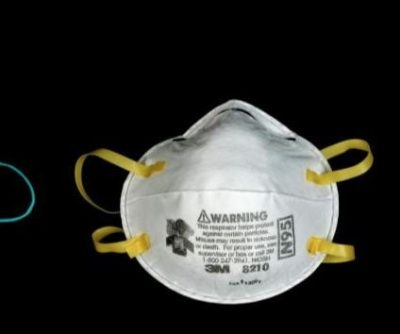NIH Study Suggests N95 COVID Masks May Expose Wearers to Toxic Compounds Linked to Seizures, Cancer

All Global Research articles can be read in 51 languages by activating the Translate Website button below the author’s name.
To receive Global Research’s Daily Newsletter (selected articles), click here.
Click the share button above to email/forward this article to your friends and colleagues. Follow us on Instagram and Twitter and subscribe to our Telegram Channel. Feel free to repost and share widely Global Research articles.
***
The intense propaganda used to coerce you to wear a face mask is not based on science. It is a pure political power play designed to force you and your children into submission.
And they are preparing to force you to mask up again.
In April, The Gateway Pundit reported on a German study that reveals that using a face mask during pregnancy may increase the chance of stillbirth, testicular dysfunction, and cognitive decline in children.
Now, a study from researchers at Jeonbuk National University in South Korea, released in April and quietly being re-shared, suggests the “gold standard” surgical N95 masks may expose users to dangerous levels of toxic chemicals.
The study looked at two types of disposable medical-grade masks and several reusable cotton masks.
The study found that the chemicals released by these masks had eight times the recommended safety limit of toxic volatile organic compounds (TVOCs).
Inhaling TVOCs has been linked to health issues like headaches and nausea, while prolonged and repeated has been linked to organ damage and even cancer.
‘It is clear that particular attention must be paid to the VOCs associated with the use of KF94 [medical] masks their effects on human health,’ the researchers wrote in the study published April.
TOVCs, or Total volatile organic compounds, describes a wide range of organic chemical compounds, which are release by things like cleaning and beauty products, burning fool and cooking, that could be classified as volatile organic compounds (VOCs). VOCs are reserved for characterization of such substances in polluted air, that is, VOCs generally refer to vapors of gases given off by compounds rather than the liquid phase.
While The Environmental Protection Agency (EPA) recommends keeping TVOC levels below 0.5 parts per million in indoor air, the study reveals that disposable masks studied contained up to 14 times the TVOCs compared to the cotton masks.

Samples A1 through B3 represent disposable masks, whereas samples C1 through E4 are cloth masks. Disposable masks had up to 14 times more TVOCs than cloth masks Credit: DailyMail.com
The study is concerning especially in tandem with research released in January, 2023 by the Cochrane Library that suggests masks provide ‘little to no difference’ to Covid infection or death rates:
There is uncertainty about the effects of face masks. The low to moderate certainty of evidence means our confidence in the effect estimate is limited, and that the true effect may be different from the observed estimate of the effect. The pooled results of RCTs did not show a clear reduction in respiratory viral infection with the use of medical/surgical masks. There were no clear differences between the use of medical/surgical masks compared with N95/P2 respirators in healthcare workers when used in routine care to reduce respiratory viral infection. Hand hygiene is likely to modestly reduce the burden of respiratory illness, and although this effect was also present when ILI and laboratory‐confirmed influenza were analysed separately, it was not found to be a significant difference for the latter two outcomes. Harms associated with physical interventions were under‐investigated.
*
Note to readers: Please click the share button above. Follow us on Instagram and Twitter and subscribe to our Telegram Channel. Feel free to repost and share widely Global Research articles.
Featured image is from GP

